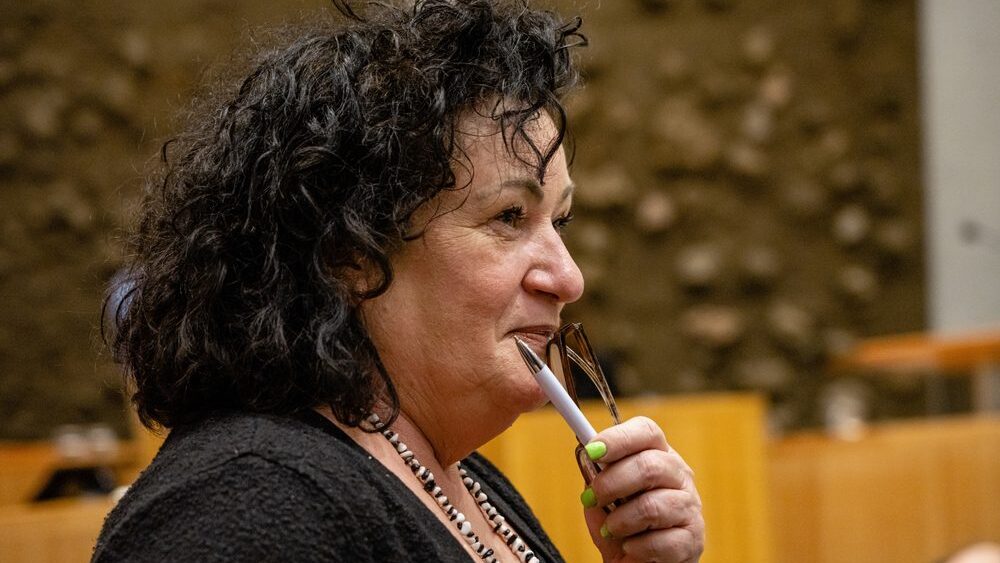
Caroline van der Plas
Photo: Jeroen Meuwsen Fotografie / Shutterstock.com
A controversial bill proposing a migrant redistribution scheme, which would force municipalities to take in asylum seekers, is soon to be put to a vote in the Netherlands.
The position of the pro-farmers Boer Burger Beweging (BBB) party on the bill has been unclear, but important: The party is expected to make significant gains in November’s elections for the House of Representatives, likely placing it in a future government coalition or kingmaker role.
A vote in favor by the BBB would be needed for the bill to pass; it would otherwise remain stranded in the Senate, where the BBB—following its astounding victory in last March’s elections—is the largest entity.
During a September 28th appearance on the talk show Op1, BBB leader Caroline van der Plas said her party would vote in favor of the bill, provided there would be no coercion [from the government] and that a maximum of 15,000 asylum seekers would be let into the country each year. “’Otherwise,” she said, “we will vote against.’”
That hardly clarified much, given that the point of the bill is exactly that the government wants to mandate that municipalities accept a certain quota of migrants.
BBB-leider @lientje1967 stemt alleen voor de spreidingswet als er geen sprake meer van dwang is en als er een plafond van 15.000 vluchtelingen per jaar komt. ''Anders stemmen we tegen.'' #Op1 #WNL pic.twitter.com/jMCITTSFHi
— Op1 (@op1npo) September 28, 2023
By comparison, Dutch MP Pieter Omtzigt’s new party, which is polling in an impressive third place, seeks a maximum of 50,000 asylum seekers per year.
As late as Tuesday, September 26th, the issue was the topic of a long parliamentary debate, during which van der Plas appeared reluctant to indicate a clear position.
In her statement, she criticized the redistribution scheme and accused the government of wanting to “administrate away” the problem of mass migration by placing responsibility on the municipalities. It is “an attempt to put a bandaid on a broken leg,” she said, adding that the government “thinks it can control and regulate everything in this country.”
As an example, van der Plas cited the government’s crusade against nitrogen emissions, which hit Dutch farmers the hardest.
Rural communities, van der Plas decried, would also be the ones hardest hit by schemes such as the migrant redistribution bill, as large cities like Rotterdam can safely offload their burden onto them.
The example of Ter Apel, a village where the country’s sole registration point for asylum seekers is located, is particularly illustrative.
The small village, which has a population of around 9,700, has gained some notoriety for the violence and criminal behavior some asylum seekers have brought there. There has been a much-publicized uptick in burglaries, and incidents such as a man running naked in the street, and others admitting on camera that they are on the lookout for “blonde women,” adding that the Netherlands will soon become Islamic.
The situation has become so dangerously anarchic that local residents felt compelled to form vigilante groups, making citizen’s arrests.
